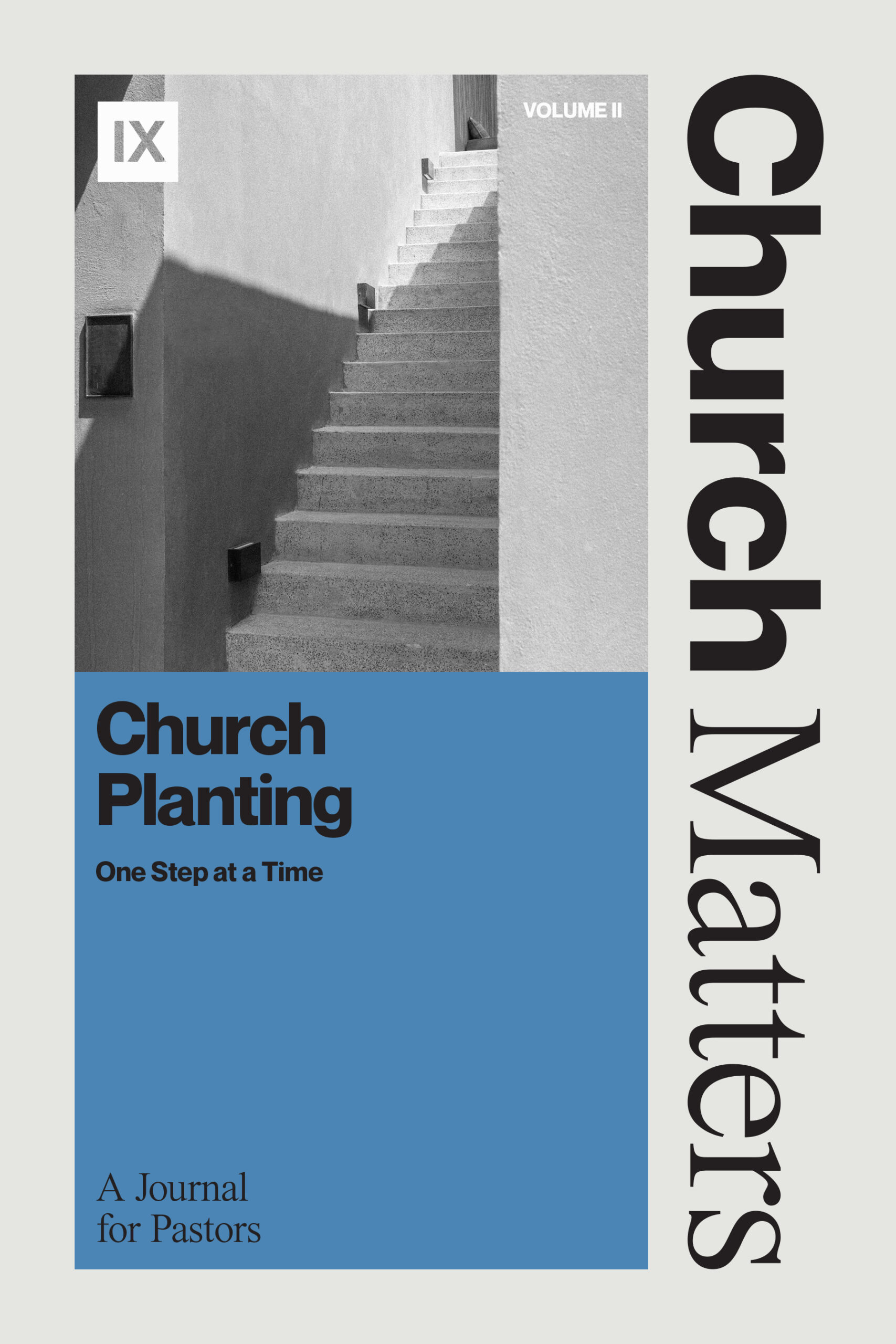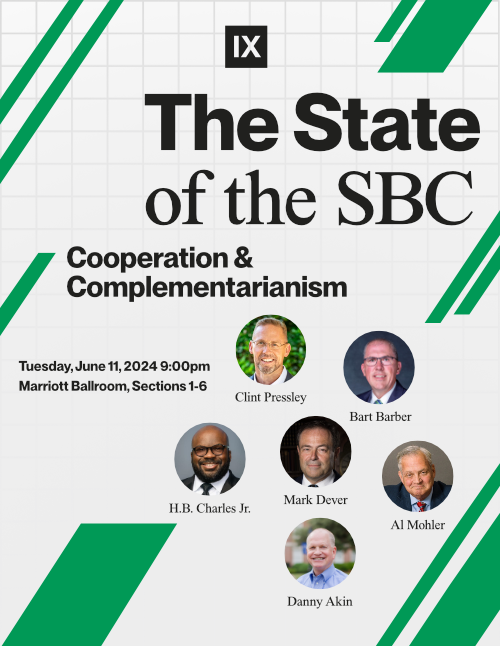The Priority of Patience, Prayer, and Preaching in Church Planting
I pastor an ordinary church in an extraordinary part of the world. My city, Ras Al Khaimah, is in the United Arab Emirates. It’s extraordinary because it’s situated near the tip of the Arabian Peninsula, and eleven and a half years ago the ruling Sheikh granted land for an evangelical church building here.
Yet, the church that’s been planted here is ordinary. Hopefully, what marks our church is what would mark any faithful church in any part of the world.
So if you’ve come to this article looking for a new technique or tips on how to develop and strengthen your brand, you’ll be disappointed. Because the church is the demonstration of the wisdom of God, we must be careful that our labors to pursue its growth and health don’t derive from man’s wisdom but God’s. God-centered ends are accomplished by God-given means.
Therefore, church planter, before you do anything else, you must prioritize three things: patience, prayer, and preaching.
PATIENCE
Among the many images we find in Scripture for the work of ministry, one common principle is the necessity of patience in the work of the kingdom. Think of the farmer sowing his seed (Mark 4:14; Jas. 5:7).
From the beginning, Christians have always been marked out as a waiting people, as many of our fathers “died in faith, not having received the things promised, but having seen them and greeted them from afar” (Heb. 11:13). We serve the God who sees the end from the beginning, who gets particular glory by taking what seems small and unimpressive to this world and slowly growing it into something astonishing, that which can only be explained by his power (Zech. 4:10; Matt. 13:31–32). Among other things, the drama of redemptive history will definitively prove that God was incredibly patient both with his creatures and in his great work of salvation.
As we think about church planting, we must refuse to move quickly when our God is pleased to move slowly. While it may not fit with the zeitgeist of our culture and times, we trust deep, lasting change that’s rooted in the gospel doesn’t happen overnight. Yes, our God grants breakthroughs and revivals. But for those moments to be genuine and lasting, they must come on God’s terms and by his ways.
Pastoral patience demands we labor by faith, trusting that our God knows how to spread and protect the gospel better than we do. For example, when a pastor friend of mine began laboring in his new church, the congregation wasn’t yet ready to receive the Bible’s teaching on elders. Rather than rush the church toward where they “needed” to be, he waited patiently—for ten years! He knew it would be wrong to split the church over this issue, so he led by teaching and praying until the church was ready. Now that church is thriving under their leadership and bearing much fruit.
Church planters, prioritize patience.
PRAYER
Charles Spurgeon famously called the church prayer meeting “the powerhouse of the church.” If it’s good for the church, then surely it’s good for the church planter.
Of all the good endeavors the apostles could have given themselves to in the early church—both “when the disciples were increasing in number” and when there was conflict between the Hellenists and Hebrews over the neglect of widows—what did they do? They devoted themselves “to prayer and to the ministry of the word” (Acts 6:1, 4). Prayer was pivotal to the election of the first deacons (Acts 6:6), evangelism (Acts 4:31), Peter’s release from prison (Acts 12:5, 12), strength in the midst of suffering and imprisonment (Acts 16:25), the health of the Ephesian church and her leaders (Acts 20:36), and the overall work of God in the advance of the gospel.
If your vision to plant a church doesn’t include a commitment to public and private prayer, then your vision needs correcting. When the new and cutting-edge is valued over the wisdom of the ages, we’re subtly submitting ourselves to human cleverness and therefore diminishing our desperate need to pray for the power of God. If our efforts to plant churches aren’t attended to by steady, disciplined, private prayer, then what reason do we have to think our churches will reach beyond our generation and into future ones?
The problem with relying too heavily on church planting techniques or brands or methods that make sense in one particular cultural moment is that our cultural moment will soon pass and give way to another. So, if you’ve planted your church while relying on all the wisdom this current cultural moment can give you, just know it’s prone to fade with the passage of time.
Consider instead how it pleases God to expose the wisdom of this world in its folly (1 Cor. 3:19). Unseen by this world, a steady commitment to prayer is seen by our God who is pleased not only to hear but also to act.
Church planters, prioritize prayer.
PREACHING
As the apostle Paul languished in a Roman prison waiting to be executed by the state, he had to consider carefully what advice he should give to Timothy about the future of the church. Of all the advice he could have given, it might surprise us that he narrowed in on preaching: “Preach the Word; be ready in season and out of season” (2 Tim. 4:2). Paul banked the future of the young, emerging, and even fledgling church on the proclamation of the Word of God.
As you think about church planting, will it be evident that you’re wholly dependent on the Word to build the church? The true church is built on the Word of God rightly preached. If that’s not what’s primarily building your church plant, then you may want to ask if you’ve really planted a church.
From the beginning to the end, the Scriptures make it clear that God gets particular glory when it’s obvious his Word is creating and gathering a people. Giving time and attention to preaching makes clear where the church is centered. And as a congregation sits under the preached Word, it makes a statement that in the midst of a world opposed to God, this Word needs to be heard, and we need to humble ourselves before it. We joyfully and carefully submit ourselves to the revealed Word of God in order to know and make known the revealed God of the Word.
So, church planters, prioritize preaching, realizing that as you do you give yourself to the biblically sure means that God himself has promised to bless in time.
CONCLUSION
For the past ten and a half years, I’ve labored to plant and pastor a biblical church in a part of the world that desperately needs a gospel witness. While it’s an extraordinary place to plant a church, the work to plant it has been pretty ordinary. While the church must always be reforming, reform runs amok when the revealed wisdom of Scripture has been marginalized to make room for the latest pragmatic wisdom.
So, church planters, as you patiently “preach and pray, love and stay,” you’ll find that your church has been planted on fertile soil that bears up good and lasting fruit.









